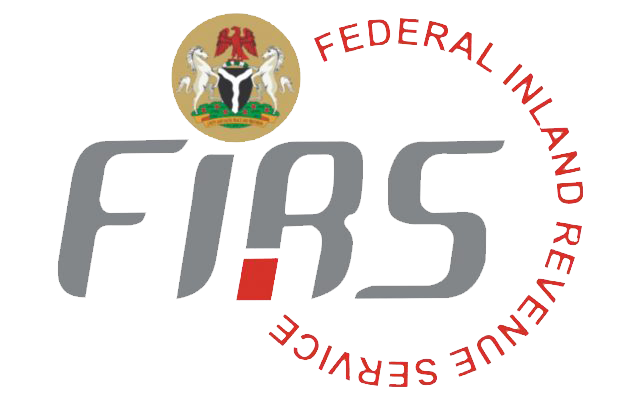I NEED TIN (Tax Identification Number)
I NEED TIN (Tax Identification Number)
Obtaining a Tax Identification Number (TIN) is a critical requirement for individuals and
businesses seeking to operate within the formal economy in Nigeria. Whether you are a
freelancer, digital content creator, startup founder, or small business owner, securing a TIN is
often the first step toward ensuring compliance with tax regulations, gaining access to financial
services, and participating in business opportunities that require regulatory documentation.
What is a TIN?
A Tax Identification Number (TIN) is a unique identifier assigned to individuals and businesses
by the Nigerian government for the purpose of tracking tax obligations and ensuring proper
administration of the tax system. It is typically a 10-digit number and serves as an official
reference for all tax-related activities, including income tax, value-added tax (VAT), and
withholding tax, among others.
TINs are issued through two primary agencies:
● Joint Tax Board (JTB): Responsible for issuing TINs to individuals and informal
businesses not registered with the Corporate Affairs Commission (CAC). This applies
mainly to freelancers, sole proprietors, and individuals in the informal sector.
● Federal Inland Revenue Service (FIRS): Responsible for issuing TINs to registered
businesses and corporate entities that have been incorporated with the CAC.
Each TIN is linked to either a personal identifier (such as a National Identification Number or
Bank Verification Number) or a company registration number (such as RC or BN number),
depending on the type of entity applying for it.
The issuance of TINs is part of the government’s broader efforts to expand the tax net, promote
accountability, and increase internally generated revenue. As such, the TIN plays a crucial role
in the country’s fiscal policy framework and is mandatory for engaging in formal economic
activities.
Importance of TIN for Individuals and Businesses.
The relevance of obtaining a TIN goes beyond mere compliance with government regulations. A
TIN serves as a formal gateway to several benefits and official processes that can significantly
impact both individuals and organizations. Below are key reasons why a TIN is important:
1. Tax Compliance and Reporting
A TIN is essential for filing taxes and ensuring proper reporting to tax authorities. Without a TIN,
individuals and businesses are not recognized within the formal tax structure, which may
expose them to penalties and interest on unpaid taxes.
2. Access to Financial and Banking Services.
Many banks in Nigeria now require a valid TIN before opening a business account. It is also
necessary for accessing certain credit facilities, government grants, and other financial services
that demand evidence of compliance with tax laws.
3. Participation in Public Procurement.
Companies and individuals interested in bidding for government contracts or public procurement
opportunities must present a valid TIN. In many cases, the accompanying Tax Clearance
Certificate (TCC) cannot be obtained without a TIN.
4. Corporate Identity and Transparency.
Having a TIN is part of building a formal corporate identity. It lends credibility to your business
and signals to clients, partners, and regulators that your operations are transparent and legally
recognized.
5. International Transactions and Remittances.
Some global platforms and foreign business partners require a Nigerian TIN before engaging in
cross-border payments or collaborative ventures. This is particularly common among
freelancers and content creators receiving international income.
6. Monetization on Digital Platforms.
Global platforms such as YouTube, Facebook, and TikTok require users to submit a valid TIN
before enabling monetization. This ensures proper tax remittance and compliance with Nigeria’s
digital economy policies.
7. VAT and Other Regulatory Requirements.
Registered businesses must present a TIN to register for Value Added Tax (VAT), obtain a TCC,
or fulfill other statutory obligations under the Companies Income Tax Act and the Finance Act.
Understanding the Difference Between JTB and FIRS TINs.
In Nigeria, the type of TIN you require depends on your business structure and regulatory
status. Understanding the distinction between the TINs issued by the Joint Tax Board (JTB) and
the Federal Inland Revenue Service (FIRS) is essential for proper registration and usage.
JTB TIN
● Issued To: Individuals, informal businesses, and sole proprietors not registered with the
Corporate Affairs Commission (CAC)
● Application Portal: https://tin.jtb.gov.ng
● Identification Required: BVN, NIN
● Common Use Cases: Freelancing, content creation, side hustles, self-employed
artisans
FIRS TIN
● Issued To: Registered companies and CAC-recognized businesses (BN or LTD)
● Application Portal: https://apps.firs.gov.ng/tinverification
● Identification Required: RC or BN Number
● Common Use Cases: Corporate taxation, VAT registration, TCC application, formal
tendering
Key Difference
While both TINs serve the same general purpose of tax identification, they are issued by
different authorities based on your entity type. It’s important to apply for the right one to avoid
misclassification or delays in tax processing.
Who Needs a TIN?
Whether or not you consider yourself a business, you may still be required to register for a TIN
under Nigerian tax laws. Here’s a breakdown of categories that typically require a TIN:
Individuals:
● Freelancers and self-employed persons
● Digital content creators and influencers
● Consultants, professionals, and artisans
● Landlords and property managers
Registered Businesses:
● Sole proprietorships registered under a Business Name (BN)
● Private limited companies (LTD)
● Non-profits, foundations, and NGOs
● Public companies and partnerships
Other Entities:
● Associations, clubs, and cooperatives
● Government contractors and suppliers
● Importers and exporters
● Companies applying for loans or grants
In summary, if you earn an income or operate a business, formally or informally you are
expected to have a TIN in Nigeria.
Step-by-Step Guide to Getting a TIN.
For Individuals (JTB TIN)
Step 1: Visit the JTB TIN Portal
Go to https://tin.jtb.gov.ng and select “Get Your TIN.”
Step 2: Provide Identification
Enter your NIN or BVN. The system will attempt to retrieve your TIN.
Step 3: Check Status
● If a TIN has already been assigned, it will be displayed.
● If no TIN is found, you may be advised to visit your state tax office.
Step 4: Manual Registration (if needed)
Visit the State Internal Revenue Service (SIRS) with:
● A valid ID
● NIN or BVN
● Utility bill
● Evidence of trade or occupation
For Registered Businesses (FIRS TIN)
Step 1: Search the FIRS TIN Portal
Go to https://apps.firs.gov.ng/tinverification. Enter your RC number or business name to check
if a TIN exists.
Step 2: No Record? Proceed to FIRS
If no record is found, visit the nearest FIRS office or send a request via email to
contactfirs@firs.gov.ng with:
● CAC Certificate (BN or LTD)
● Form CAC 1.1
● Utility bill
● Valid ID of a director or business owner
● Application letter (if required)
Step 3: Get Confirmation
Once processed, you’ll receive your 10-digit TIN, which can be used for tax payments, VAT
registration, and other corporate functions.
Common Challenges and How to Resolve Them.
Despite the digitalization of the TIN registration process, many applicants still encounter
technical and bureaucratic obstacles. Below are some common issues and their solutions:
1. Inactive Auto-Generated TINs
Some businesses have TINs generated automatically at the point of CAC registration but never
activated. Visit FIRS with your documents to activate them.
2. Mismatched Records
Differences in name spelling, date of birth, or other details between your CAC registration, NIN,
or BVN can delay TIN processing. Verify and correct all information before applying.
3. Unresponsive Portals
If the JTB or FIRS portal fails to retrieve your TIN, consider visiting the appropriate tax office to
apply manually.
4. Redirection Between Agencies
Applying to the wrong agency can lead to delays. JTB handles informal individuals, while FIRS
handles registered companies.
5. Duplicate TINs
Applying multiple times with different details can create conflicting records. Stick to one identity
profile.
Frequently Asked Questions.
Q: Is a TIN required even if I’m not yet earning?
Yes. Having a TIN shows readiness to comply with tax laws, and it is often required even before
you start earning.
Q: Can I use one TIN for multiple businesses?
No. Each registered business must have its own unique TIN.
Q: How long does TIN processing take?
Instant online if there are no issues, or 2–7 days if processed manually.
Q: Can I get a TIN for free?
Yes. There is no official fee, though you may incur service charges if you use an agent.
Q: What if I lose my TIN?
You can recover it online via the FIRS or JTB portal using your business name or personal
identifier.
Professional TIN Processing Support
If you’re facing delays, portal errors, or document issues, consider outsourcing the process to
experienced professionals. We offer:
● Fast and accurate TIN registration (JTB or FIRS)
● CAC + VAT + TCC combo processing
● Personal advisory and issue resolution
● Dedicated support for startups, NGOs, and freelancers
We help you focus on your work while we handle the tax compliance.
Conclusion and Next Steps
Whether you’re a business owner, freelancer, or content creator, having a TIN is no longer
optional; it’s essential. From securing monetization on digital platforms to unlocking access to
formal business opportunities, your TIN is the key.
Take the next step now:
● Use the appropriate portal to retrieve or apply for your TIN
● Visit your local tax office if necessary
● Or let us help you process everything efficiently
For assistance, consultations, or inquiries, reach out today. Let’s take the stress out of tax
compliance.
To find out more about Tax Identification Number and other Tax Management services, kindly contact us at:
E-mail: care@sowprofessional.com
Website: www.sowprofessional.com
Whatsapp: 07038254989
Phone: 08152451523




